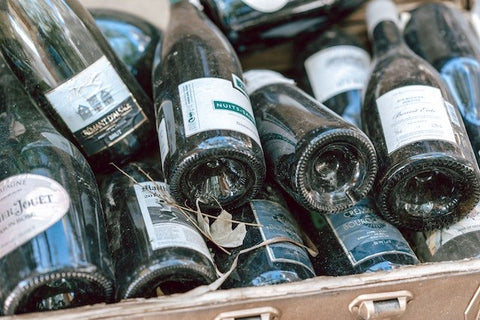Last Updated: August 6, 2023
Wine, once considered a product steeped in tradition, craftsmanship, and regional diversity, has undergone seismic changes in recent decades. The wine industry has experienced a notable shift towards the commoditization of wine, transforming it from a unique and nuanced beverage to a standardized, easily replaceable consumable. In this entry, we will rant how wine is an agricultural product deserving of the same respect and premium pricing ascribed to avocado toast.
By Michael Bozzelli | Co-Founder, Casewinelife.com
Springfield, Va–Why avocado toast? Because it is something that consumers are largely willing to pay a premium for. There’s no sticker shock when it comes to enriched (which means the manufacturer has extracted any semblance of nutritional value) bread being inserted in a toaster and smeared with mashed avocado. The increasingly cliche addition to menus across restaurants commands anywhere from eight dollars to twenty dollars depending on the eatery.
We do not want to sound condescending of the work that goes into serving up all these avocado toast orders. The bread may be highly manufactured but the farming, harvesting, importing and distribution of the fruit (avocados are not vegetables) is nothing to belittle. It is a massive undertaking to meet America’s demand for avocados and Mexico as the largest producer is fabulously successful at the task.
But this is not about the bumpy green fruit that I prefer with extra lemon juice, it's about our perception of wine. We need to show more respect for wine by paying more for the product that commonly marks the start of every great story. When did a great story ever start with avocado toast.
There are a slew of factors contributing to this scourge, including industrialization, standardization, globalization, homogenization, marketing, and price wars. Should they carry equal weight in this situation? Probably. But I contend that industrialization got us here.
Massive wine production would remain a mere aspiration without the integration of industrial techniques. The adage "Build the business and the money will come" has been a longstanding principle in the business world. Consequently, as industrialization made substantial wine production feasible, financial resources began to stream towards those producers projecting the highest output.
Another old business adage but narrowed to the retail world is sell cheap and sell a lot. This is what producers precisely did to keep the capital flowing. Culprits behind fire sale pricing are well known. Price was not a silver bullet though. Neither was industrialization while it got us here it was not to reiterate the only factor. The uniformity of taste through standardization and homogenization also advanced commoditizing forces. If anyone is going to sell a lot of something it needs to taste the same every time it is consumed to become recognizable. Wonder why merlot started to taste a lot like cabernet sauvignon in the Mid-2000’s.
It's now the moment to hold Madison Avenue accountable. Large scale producers who were blurring–no, flamethrowing the nuances between merlot and cabernet sauvignon, hired marketing firms who were tasked with maintaining and growing sales so they crafted messaging that focused on affordability, accessibility and convenience (honey, it’s a screw top) for behemoth bargain basement wineries. Yet another example of a commoditizing force on wine.
Not everyone can afford 95 point Napa Valley Cabernet Sauvignon and there should be affordable alternatives to service individuals within that market segment. This positive outcome of commoditization ensures inclusivity and for that we are forever grateful. Regrettably, if you are not already a believer, there is a problem with the collateral damage that it has caused.
Limited production wineries are being pressured to produce similar wines in taste and price as paletes have been conditioned to like the uniform over the unique. Terroir driven wines curry less favor now with wine drinkers. These are the wines that put places like Paso Robles, California and Walla Walla, Washington on the map. If we keep reaching for sameness we will not find the somewhereness that those cherished cities breathed into every bottle that they produced.
It is not all grim. Many wine enthusiasts and producers are actively working to counteract the trend towards commoditization. They emphasize the importance of preserving the integrity of traditional winemaking practices, championing terroir-driven wines, and promoting the appreciation of unique grape varietals. Winemaker, Eric Jensen, at Booker Wines exemplifies this culture. By educating consumers and encouraging experimentation beyond mass-produced wines, he aims to restore wine as an artisanal, diverse, and terroir-driven experience. As consumers we can help in this effort by purchasing the wines that defy commoditization. Hail the 95 Point Napa Cabs!




评论 (0)
这篇文章没有评论。成为第一个在此留言的人!